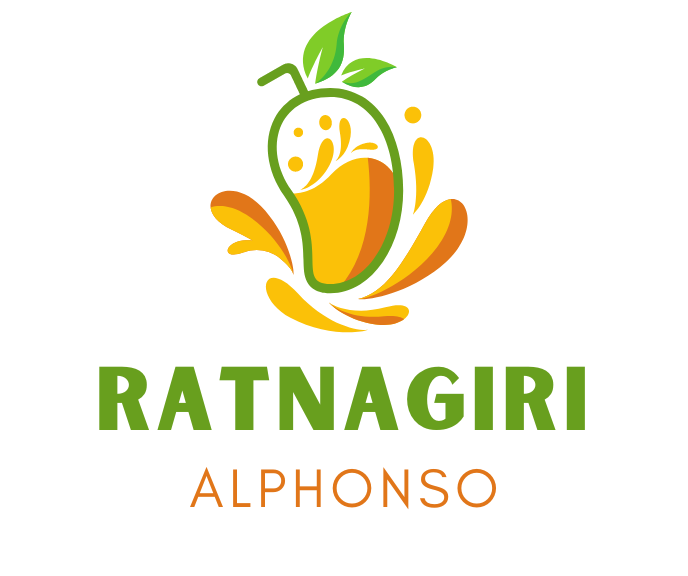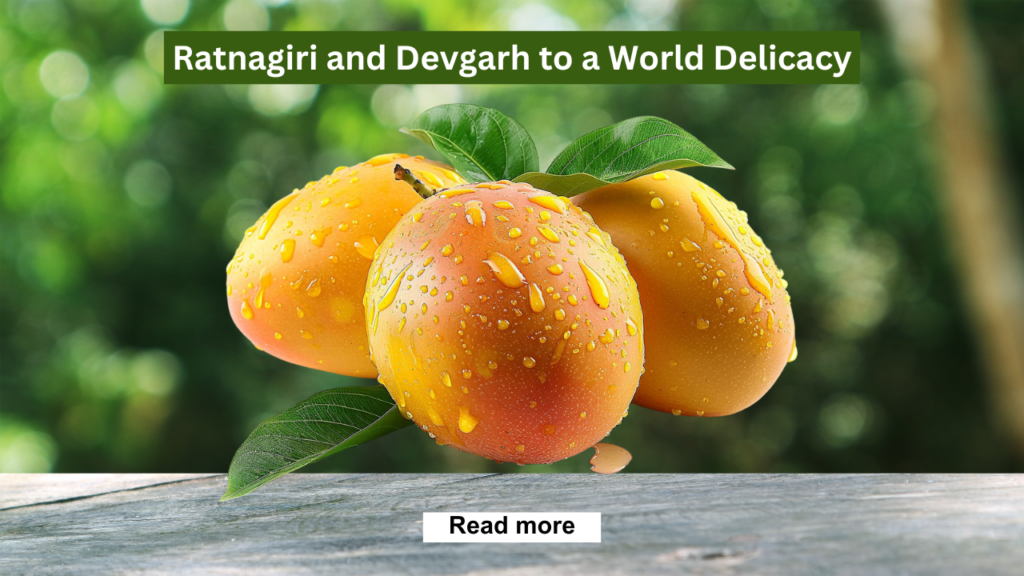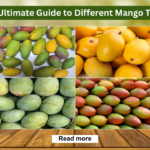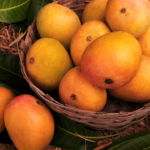The long history and unmatched sweetness of the Mangoes Alphonso set it apart from other mango kinds, earning it the moniker “King of Fruits.” Though grown throughout the country, Ratnagiri and Devgarh are particularly known for their superb Alphonso mangoes. This blog traces the history and distinctive qualities of Alphonso mangoes from Ratnagiri and Devgarh, from these well-known orchards to international recognition.
Mangoes from Ratnagiri and Devgarh that are known for their exceptional quality and flavour are called Alphonso mangoes. Although superior Alphonso mangoes are produced in both areas, minor variations in their growing environments result in unique flavour profiles.
Historical Background of Ratnagiri and Devgarh Alphonso Mangoes
Ratnagiri Alphonso Mangoes
Ratnagiri, a coastal district in Maharashtra, is famed for its fertile soil and ideal climate, which provide the perfect environment for cultivating Alphonso mangoes. The history of Alphonso Ratnagiri mangoes dates back to the 16th century when Portuguese colonists introduced grafting techniques that enhanced the fruit’s quality. Over the centuries, Ratnagiri has become synonymous with premium Alphonso mangoes, known for their rich flavour and smooth texture.
Alphonso Devgarh Mangoes
Maharashtra’s other district, Devgarh, is well known for its Alphonso mangoes, which are frequently regarded as some of the best in the world. The soil, temperature, and altitude at Devgarh combine to give its mangoes a special sweetness and aroma. Similar to Ratnagiri, Alphonso mangoes have been associated with Devgarh for several centuries, as the fruit became a mainstay in both local markets and royal orchards.
Unique Characteristics
Ratnagiri Alphonso Mangoes
Mangoes from Ratnagiri Alphonso are prized for having the ideal ratio of acidity to sweetness. Ripeness is indicated by the fruit’s vivid golden hue with a tinge of crimson flush. The creamy, non-fibrous pulp dissolves in the tongue and leaves a fragrant, lingering flavour. Mangoes in Ratnagiri have a distinct taste and texture because of the coastal climate, which is characterised by high humidity and moderate temperatures.
Devgarh Alphonso Mangoes
Mangoes from Devgarh Alphonso are known for their strong sweetness and aromatic scent. The fruit is smooth and buttery with a deep golden colour. Mangoes with intense flavour and pleasant aroma are produced in Devgarh due to the unique nature of the soil and weather of the region. Devgarh’s high altitude and lower temperatures aid in the fruit’s natural ripening phase, bringing out its natural sugars.
Journey to Global Fame
Alphonso mangoes’ journey from Ratnagiri and Devgarh to global markets is a tale of imagination and effort. Although exporting their fragile produce has been difficult for both areas, advances in transportation and preservation have made it possible for mango lovers all around the world to enjoy these mangoes.
These days, nations like the US, the UK, and the Middle East place a premium on Alphonso mangoes from Ratnagiri and Devgarh. Due to their superior flavour and good quality, they are highly sought after by consumers worldwide and can fetch higher prices in other markets.
Cultural Significance
Alphonso mangoes from Ratnagiri and Devgarh are not just a fruit but a symbol of Indian culture. They are a major part of customs related to food, religion, and celebration of holidays. Families eagerly await the first taste of the season’s harvest when Alphonso mangoes arrive, signalling the start of summer.
Alphonso mangoes are a sign of happiness and fortune in literature and mythology. Their unmatched sweetness and lengthy history have been an inspiration to poets, authors, and painters, further ingraining them into India’s cultural fabric.
Financial Effect
The local economy is greatly impacted by the production and export of Alphonso mangoes from Ratnagiri and Devgarh. The mango business provides a living for thousands of farmers and labourers. Mango export money contributes to the growth of the local economy and promotes economic development in the region.
Sustainability and Preserving
The preservation of the unique features of Ratnagiri and Devgarh mangoes is imperative, given the growing demand for Alphonso mangoes. In order to preserve the unmatched flavor of Alphonso mangoes for future generations, it is imperative to implement sustainable farming practices, organic growing techniques, and biodiversity preservation initiatives in these areas.
In conclusion
Mangoes from Ratnagiri and Devgarh are known for their Alphonso stories, which attest to their lasting appeal and cultural significance. Because of the special growth circumstances in these areas, Alphonso mangoes are prized for their long history and excellent flavour. Ratnagiri and Devgarh Alphonso mangoes’ journey from royal plantations to international marketplaces is a celebration of custom, ingenuity, and the ageless pleasure of indulging in the “King of Fruits.”
FAQs
1.How can consumers distinguish between Ratnagiri and Devgarh Alphonso mangoes?
While Alphonso mangoes of superior quality are produced in both places, Ratnagiri mangoes are distinguished by their slightly sharp taste and well-balanced sweetness, while Devgarh mangoes are distinguished by their deep sweetness and fragrant richness. Mango appearances in the two areas may also differ slightly in terms of colour and texture.
2.How important are Alphonso mangoes to Indian culture?
Alphonso mangoes have a significant cultural and celebratory role in India. They are frequently connected to significant celebrations and summer festivals. Their arrival ushers in the mango season, which is eaten in a variety of ways, from raw slices to classic sweets.
3.How are Alphonso mangoes exported from India?
In order to preserve their freshness during the journey, Alphonso mangoes are exported utilising innovative packing and transportation techniques. Mangoes are shipped in a controlled atmosphere and stored in cold storage to guarantee that they reach their destination in good shape.
4.What distinguishes Ratnagiri’s farming from Devgarh’s?
The excellent harmony of sweetness and acidity in the mangoes is attributed to Ratnagiri’s coastal climate. Conversely, Devgarh gains from its high altitude and colder weather, which bring out the sweetness and fragrance of the mangoes. Each of the two regions’ superb Alphonso mangoes has unique qualities.
5.What effects does the growing of Alphonso mangoes have on the environment and the economy?
Because Alphonso mango farming creates jobs for labourers and farmers in the Ratnagiri and Devgarh regions, it has a major economic impact on the area. In order to reduce the impact on the environment and guarantee the long-term viability of mango production, sustainable farming practices are being implemented.



